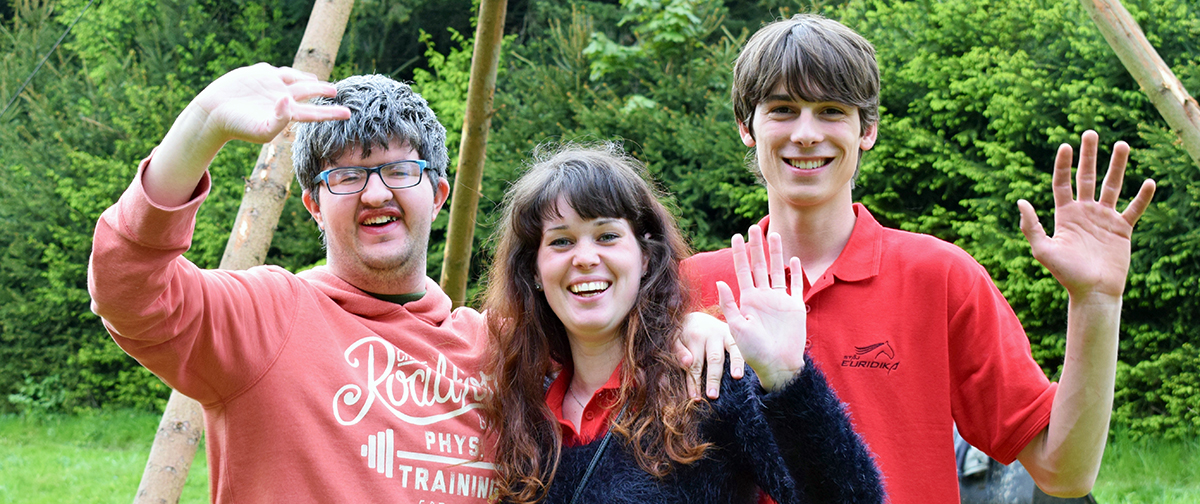

International Research Team
Dr. Lotta Granholm-Bentley, PhD
Ann-Charlotte (“Lotta”) Granholm joined the University of Denver on Sept. 1, 2015 as the founding executive director of the Knoebel Institute for Healthy Aging. Granholm is also a research professor in the Department of Biological Sciences at the University of Denver. She comes to DU after 14 years as the director of the Center on Aging at the Medical University of South Carolina. Granholm recently received a three-year appointment as a guest professor in neurosciences at the Karolinska Institute in Stockholm. One of the largest and most prestigious medical universities in the world, Karolinska is the premier research institute in Sweden and the university that gives out the Nobel Prize in Medicine (official name: Nobel Prize in medicine or physiology).
Dr. Elizabeth Head, MA, PhD
Dr. Head is Professor, Vice Chair for Research, Pathology & Laboratory Medicine and Director of the Experimental Pathology PhD Program at the University of California- Irvine. Dr. Head received a Masters in Psychology and a Ph.D. in Neuroscience from the University of Toronto, Canada. She received postdoctoral training at the University of California – Irvine (UCI). At UCI, she was co-leader of the Alzheimer Disease Research Center Neuropathology Core and Director of the Brain Tissue Repository. Dr. Head moved to the University of Kentucky in January of 2009 then she returned to her alma mater UCI in 2019. She has been actively engaged in a longitudinal study of aging in people with Down syndrome. Dr. Head has dedicated over 20 years to the study of aging and Alzheimer’s disease with a focus on people with Down syndrome.
 Dr. Huntington Potter, PhD
Dr. Huntington Potter, PhD
Dr. Huntington Potter is a Professor of Neurology, a member of the Linda Crnic Institute for Down Syndrome and the founder and director of the University of Colorado Alzheimer’s and Cognition Center. His research focuses on the mechanistic relationship between Alzheimer’s disease and Down syndrome and on the development of novel therapeutics and their testing in animal models and human trials. He is a Fellow of the American Association for the Advancement of Science and a Founding Fellow of the National Academy of Inventors. His electron micrographs of DNA are on permanent exhibit in the Smithsonian Institute.
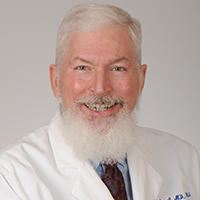 Dr. Steven Carroll, MD, PhD
Dr. Steven Carroll, MD, PhD
Steven L. Carroll, MD, PhD, is Professor and Chair of the Department of Pathology and Laboratory Medicine at the Medical University of South Carolina (MUSC), where he holds the Gordon R. Hennigar, Jr., MD, Endowed Chair in Pathology. Dr. Carroll is the Director of the South Carolina Alzheimer’s Disease Research Center, the Carroll A. Campbell Jr. Neuropathology Laboratory (Brain Bank) and the Hollings Cancer Center Biorepository & Tissue Analysis Shared Resource. Dr. Carroll is an Associate Editor for the American Journal of Pathology and the Journal of Neuropathology and Experimental Neurology. Dr. Carroll is board certified by the American Board of Pathology in Anatomic Pathology and Neuropathology. Dr. Carroll’s research program, which is funded by the National Institutes of Health, the Department of Defense and the Children’s Tumor Foundation, studies the role that the growth factor neuregulin-1 plays in the pathogenesis of neurofibromatosis-associated peripheral nerve sheath tumors, Alzheimer’s disease and Alzheimer’s disease related dementias.
Dr. Elliott Mufson, PhD
Dr. Mufson is professor of Neurobiology and director of the Alzheimer’s Research Laboratory at the Barrow Neurological Institute in Phoenix, AZ. He is the principal investigator of a multi-site clinical molecular neuropathology program project grant entitled “Neurobiology of Mild Cognitive Impairment in the Elderly,” supported by the National Institute of Aging. This program involves investigators at several different universities and Alzheimer disease (AD) centers within the USA. He brings to the project his research perspective in human brain clinical pathological studies, as well as expertise in human single cell gene array technology. He is an internationally recognized expert in human brain connectivity and the neurobiology of mild cognitive dementia and AD and has published over 300 peer-reviewed publications on molecular and cellular pathology of AD and DS in human brain and mouse models of this disorder.
Dr. Aurélie Ledreux, PhD
Dr. Ledreux joined the Knoebel Institute of Healthy Aging at the University of Denver in October 2016. She graduated with a Bachelor’s degree in Biology from the University Pierre et Marie Curie in Paris, France in 2001, and a Ph.D. in Environmental Toxicology from AgroParisTech in Paris, France in 2010. In 2011, she moved from Paris with her husband and cat to Charleston, SC when she was awarded with a postdoctoral fellowship from the National Research Council of the National Academies to work at the Marine Biotoxins Program for NOAA. At that time, her research was focused on investigating the transfer of marine biotoxins in the food web. In 2014, she joined Dr. Granholm’s lab at the Medical University of South Carolina in Charleston, SC as a postdoctoral researcher to work on the effect of high fat diet and inflammation on cognition and the brain in animal models of aging. Her current research interests focus on healthy aging, and blood biomarkers for neurodegenerative diseases.
Dr. Iban Aldecoa, MD, PhD
Dr. Aldecoa obtained his Medical Degree from the University of the Basque Country (2005-2011) with the qualification of Extraordinary Prize, and specialized in Pathology at the Hospital Clinic of Barcelona (2012-2016). He obtained his PhD in Translational Medicine in 2016 and worked as a Research Fellow until 2017, when he joined the Hospital Clinic of Barcelona-IDIBAPS as Staff Pathologist. He is centered in surgical and autopsy neuropathology in the Pathology Department and neurodegenerative disease neuropathology in the Neurological Tissue Bank of the Biobank-IDIBAPS, and has broadened his knowledge in surgical neuropathology as Medical Observer in the Neuropathology Departments of the Johns Hopkins Hospital (Baltimore, USA) and UPMC (Pittsburgh, USA). He is the Coordinator of the Autopsy Platform of the Pathology Department, IDIBAPS researcher and Associate Professor at the University of Barcelona. He conducts research studies centered mainly in neurodegenerative diseases, such as the study of the peripheral nervous system in alpha-synucleinopathies, as well as in brain tumors.
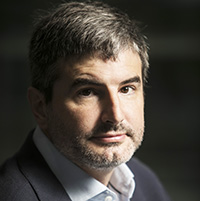 Dr. Juan Fortea, MD, PhD
Dr. Juan Fortea, MD, PhD
Dr. Eric Hamlett, PhD
Dr. Hamlett has 16 years of research experience with the last seven years dedicated to neurodegenerative disorders, specifically Alzheimer’s disease. His Ph.D. education and research focused on the cerulean impact on brain inflammation, and its role in exacerbating other neuropathology. As a postdoctoral fellow, he enhanced expertise further by acquiring skills in blood-based biomarkers (BDNF, neuronal exosomes) from clinical samples. He published a novel study on exosomal biomarkers in the brain and was first to describe the exosomal connections to DS-AD. Recently appointed as Assistant Professor, March 2019, he serves in the Department of Pathology and Laboratory Medicine at the Medical University of South Carolina (MUSC). As the coordinator for the South Carolina Brain donor program he is developing new research projects that are centered on neurodegenerative disease.
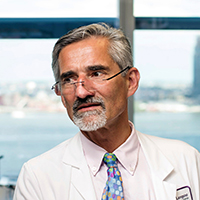 Dr. Thomas Wisniewski, MD
Dr. Thomas Wisniewski, MD
Dr. Thomas Wisniewski is Professor of Neurology, Pathology and Psychiatry at New York University School of Medicine. He is also Director of the NYU Alzheimer’s Disease Research Center, the Conformational Disorders Laboratory, the Center of Cognitive Neurology, the Barlow Memory Disorders Center, the NYS Center of Excellence for Alzheimer’s disease and the Division of Aging and Dementia. His group helped develop novel therapeutic approaches for Alzheimer’s disease (AD) and Down syndrome, in particular immunotherapeutic approaches. His laboratory developed both active and passive immunization specifically targeting abnormal oligomeric protein conformation, as well as a means to stimulate innate immunity to ameliorate AD pathology. He has also developed the first partially effective vaccine for a prion disease (chronic wasting disease), which was tested in an animal population naturally at risk for the disease (deer). Recently, he developed an unbiased proteomic methodology that produces robust data utilizing archival formalin, fixed paraffin embedded human tissue, and used this method to perform the most extensive proteomic analyses of amyloid plaques and phosphorylated tau. In addition, Dr. Wisniewski was the first to hypothesis that apolipoprotein (apo) E plays a critical role in AD pathogenesis, coining the term “pathological chaperone” for the role of apoE in AD. More recently, his laboratory developed a novel therapeutic approach based on blocking the interactions between apoE and amyloid β, showing it to be effective in multiple AD models. This work has led to >350 peer reviewed publications and 30 US issued patents.
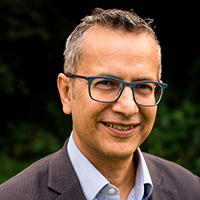 Dr. Shahid Zaman, MD, PhD, FRCPsych, FRCP
Dr. Shahid Zaman, MD, PhD, FRCPsych, FRCP
Dr Shahid Zaman, MD, PhD is an Assistant Professor in Psychiatry of Intellectual disability and Honorary Consultant Psychiatrist in the Department of Psychiatry, Clinical School, University of Cambridge. He leads his research group at the Cambridge Intellectual and Developmental Disabilities Research Group (CIDDRG). His research aims to understand the neurobiological basis of developmental disorders and discover treatments for the complications of these conditions. He trained in internal medicine, clinical biochemistry and the neuropsychiatry of intellectual disability. His PhD was at the MRC Molecular Neurobiology Unit, Cambridge, UK where he studied the structure-function relationship of recombinant fast inhibitory GABA type-A receptors. Then as a Wellcome Trust International Prize Travelling Fellow he investigated at the Cold Spring Harbor Laboratory in New York, the synaptic physiology in a mouse model of autosomal dominant familial Alzheimer’s disease caused by mutations in presenilin-1. He continued research to understand the molecular mechanisms of synaptic physiology in the UK at Bristol University’s MRC Centre for Synaptic Plasticity. By focusing on genetic disorders, he hopes to understand the causes of co-morbidities and clinical phenotypes prevalent in developmental disorders. His focus is on Down syndrome and its associated features of cognitive impairment and the high risk for Alzheimer’s disease.
.jpg?sfvrsn=752f4bbb_0) Dr. Isabel Barroeta, MD, PhD
Dr. Isabel Barroeta, MD, PhD
Dr. Isabel Barroetta is devoted to translational research in neurodegenerative diseases. She trained as a physician at Universidad de Los Andes (Mérida, Venezuela) and as a neurologist in Hospital de la Santa Creu i Sant Pau (Barcelona, Spain). She focused her doctoral thesis on the study of human resilience to Alzheimer’s Disease at the MassGeneral Institute for Neurodegenerative Disease / Harvard Medical School (Massachusetts, USA) and obtained her Ph.D. from Universitat Autònoma de Barcelona (Barcelona, Spain). As a Neurologist with more than10 years of practice, she have gained clinical expertise in the diagnosis and treatment of patients with memory problems including adults with Down Syndrome. Her main current research interest is the study of biomarkers for tracking the Alzheimer´s disease continuum in Down Syndrome. She is also involved in clinical trials and promote brain donation at Sant Pau Memory Unit.
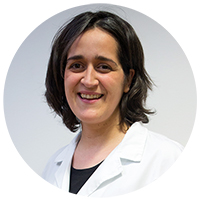 Dr. Laura Molina, MD
Dr. Laura Molina, MD
Dr. Molina is the Neurological Tissue Bank Donor Program Coordinator and neurologist at the Alzheimer's Disease and other Cognitive Disorders Unit of the Neurology Service of the Hospital Clínic-FRCB-IDIBAPS. Her research focuses on studies of neuropathological characterization in neurodegenerative diseases, correlation with biomarkers, and new therapeutic strategies. After obtaining her MD in 2000 from the University of Barcelona, she completed her specialization in Neurology at Hospital de la Santa Creu i Sant Pau in 2005. She continued her education with a clinical research fellowship at the Memory Unit of the same center (2005-2008). Dr. Molina completed her postdoctoral training in basic research at the University of Pennsylvania (2008-2012) and received the Ph.D. extraordinary Award from the Universitat Autònoma of Barcelona.
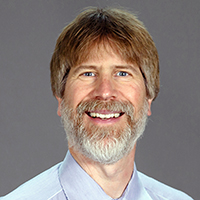 Stephen D. Ginsberg, PhD
Stephen D. Ginsberg, PhD
I am a Tenured Associate Professor in the Departments of Psychiatry, Neuroscience & Physiology, and the NYU Neuroscience Institute, New York University Grossman School of Medicine (NYUGSOM) and a Research Scientist in the Center for Dementia Research (CDR), Nathan Kline Institute (NKI). My research interests include understanding molecular and cellular underpinnings of selective vulnerability within specific forebrain neurons and their connectomes, particularly as they pertain to aging and neurodegenerative disorders. I employ animal and cellular models of aging, Alzheimer’s disease (AD), Down syndrome (DS), and neurodegeneration as well as human postmortem brain tissues for functional genomic and proteomic studies. Our underlying hypothesis is individual cell types are likely to have unique patterns of gene and encoded protein expression under normative conditions and drive pathological states when dysfunctional. A goal is to exploit mechanistic information at the single cell level to develop transformative treatment strategies for neurodegenerative disorders including DS. I am trained in neuroanatomy, neuropathology, neurochemistry, and molecular & cellular neurobiology, including single-population microarray analysis and RNA sequencing (RNA-seq). I’ve been studying gene and protein expression profiles in the forebrain including the basal forebrain, hippocampal formation, and neocortex >26 years with a special emphasis on the septohippocampal and basocortical interactomes. I have >26 years’ worth of experience with RNA amplification and microarray technology, >9 years’ worth of experience with RNA-seq technology, and >20 years’ worth of experience in proteomic profiling in animal and cellular models and human postmortem brains. Current methodologies in my lab include confocal laser scanning microscopy, dietary manipulations including calorie restriction (CR), CR mimetic delivery, and maternal choline supplementation (MCS), electron microscopy, immunocytochemistry, in situ hybridization, microarray analysis, microaspiration via laser capture microdissection (LCM), Nanostring nCounter, Northern blotting, proteomics, real-time qPCR, subregional and single population RNA-seq, single cell/population cell RNA amplification, siRNA knockdown delivery, viral vector delivery, surgical manipulations including axotomy and intracerebral delivery paradigms, and Western blotting. Thus, my multidisciplinary investment in performing expression profiling studies at the single population and subregional level is relevant towards understanding the potential pathogenesis of selective neuronal vulnerability during the progression of dementia
.jpg?sfvrsn=71da4bbb_0)